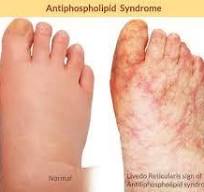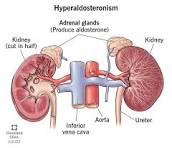INTRODUCTION:
Health is wealth—a simple yet profound truth. One sickness can drain a
lifetime of savings, leaving individuals and families in distress. While modern
medicine has made remarkable strides in diagnosing and treating diseases, many
health conditions continue to defy medical solutions, pushing us to explore
alternative approaches.
Natural remedies have been a cornerstone of healing for centuries, long before
the advent of modern pharmaceuticals. Across cultures and civilizations, people
have relied on nature’s gifts—herbs, roots, fruits, and holistic practices—to
restore health and vitality. While this encyclopedia does not seek to undermine
the importance of medical science, it aims to complement it by shedding light
on time-tested natural solutions. It encourages further research into the power of
nature in healing, offering insights into remedies that have provided relief to
countless individuals.
NATURAL REMEDIES FOR ANTIPHOSPHOLIPID SYNDROME
Antiphospholipid Syndrome (APS) is a serious autoimmune disorder
characterized by the presence of antiphospholipid antibodies in the
blood, which increase the risk of abnormal blood clotting (thrombosis).
It can lead to complications such as deep vein thrombosis (DVT),
stroke, recurrent miscarriages, and other cardiovascular issues. While
APS typically requires long-term medical management, especially with
anticoagulants like warfarin or heparin, some supportive lifestyle
changes and natural approaches may help reduce inflammation and
support general cardiovascular health.
1. Healthy Diet:
How it works: A nutrient-rich, anti-inflammatory diet may help
reduce systemic inflammation, support vascular health, and
potentially reduce clotting risk.
Usage: Incorporate plenty of leafy greens, berries, nuts, whole
grains, and lean proteins. Omega-3 rich foods like salmon,
flaxseed, and walnuts are beneficial. Limit trans fats, reduce
processed sugars, and avoid high-sodium foods.
2. Regular Exercise:
How it works: Moderate exercise helps maintain circulation,
lowers blood pressure, improves lipid levels, and reduces clotting
risks.
Usage: Aim for at least 30 minutes of moderate activity most
days. Activities like walking, cycling, swimming, or gentle
aerobic routines are advisable. Avoid high-impact sports unless
cleared by a physician.
3. Omega-3 Supplements:
How they work: Omega-3 fatty acids (EPA and DHA) have anti-
inflammatory and potential antithrombotic effects, supporting
vascular health.
Usage: After consulting your doctor, consider taking omega-3
supplements. Choose high-quality, mercury-free fish oil or algae-
based supplements found at pharmacies or health food stores.
4. Stress Management:
How it works: Chronic stress can increase systemic
inflammation and may exacerbate autoimmune conditions. Stress
reduction also promotes cardiovascular stability.
Usage: Incorporate breathing exercises, mindfulness meditation,
or yoga into your routine. Consider therapy or guided relaxation
if needed. Apps and local wellness centers often offer support.
5. Turmeric:
How it works: Curcumin, the active compound in turmeric, is
known for its anti-inflammatory and antioxidant properties,
which may be useful for individuals with autoimmune disorders
like APS.
Preparation/Usage: Add turmeric to food or drink (e.g., golden
milk), or take curcumin supplements after medical consultation.
Turmeric capsules are available in most local markets and health
shops.
6. Ginger:
How it works: Ginger helps lower inflammation and may
improve circulation by mildly thinning the blood, although it
should be used cautiously in people on anticoagulants.
Preparation/Usage: Drink ginger tea (grate fresh ginger into
boiling water) or include it in meals. Fresh ginger is widely
available in markets and groceries.
7. Avoid Smoking and Excessive Alcohol:
How it works: Smoking damages blood vessels and increases
clot risk, while alcohol can interfere with medications and
cardiovascular stability.
Usage: If you smoke, seek support to quit. Alcohol should be
limited or avoided, especially when taking anticoagulants.
8. Green Tea:
How it works: Green tea contains catechins and other
polyphenols with anti-inflammatory and antioxidant effects,
potentially beneficial for overall immune regulation.
Preparation/Usage: Drink one to two cups of unsweetened green
tea daily. Choose organic or minimally processed brands,
available at local or health food markets.
Key Consideration:
Antiphospholipid Syndrome APS is a life-threatening condition that
must be treated primarily with medical therapy, especially
anticoagulants to prevent stroke, thrombosis, or miscarriage. While
natural remedies can support general health, they are not substitutes for
essential clinical interventions. Certain herbs and foods (like turmeric,
ginger, or omega-3s) may interact with blood-thinning medications,
potentially increasing bleeding risk. Therefore, it is critical to speak
with your healthcare provider before adding any supplements or major
dietary changes to your routine. Monitoring your condition regularly
with appropriate lab tests and following your doctor’s guidelines
remains the cornerstone of managing APS safely and effectively.



